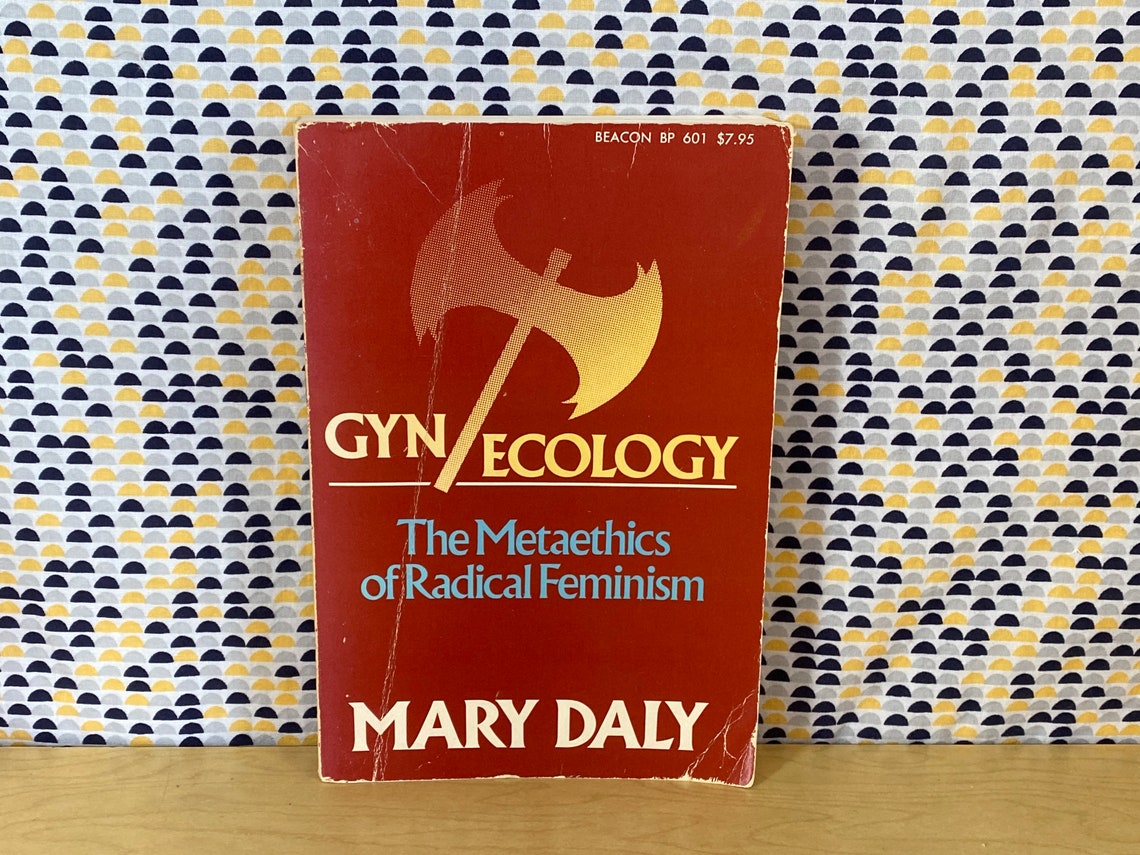

Her initially unsuccessful promotion to associate professor, in 1969, became a cause cé1èbre, a rallying point for feminists who saw her bid for academic recognition as testing the nature and extent of the modern academy's feminist commitments.

Despite her formal repudiation of the Catholic Church in the early 1970s, Daly spent virtually all her professional life teaching at Boston College, a Jesuit-run institution. As her own kind of Wiccan-influenced radical feminist, Daly was unique even among iconoclasts, and her career was fraught with controversy. At the time of her death, Robin Morgan hailed her as "a central figure in twentieth-century feminism." (1)Īs a feminist emerging out of a Catholic context in the 1960s, Daly was a true iconoclast. In 2007, feminist theologian Caryn Riswold compared her to Martin Luther as a reformer whose ideas left an "indelible mark" on the religious tradition from which they emerged. Her second, Beyond God the Father (1973), extended the critique begun in The Church and the Second Sex and marked Daly's formal repudiation of Catholicism in favor of a feminist religion of her own, one she elaborated thereafter in numerous essays and six books, including a memoir and a dictionary. Her first book, The Church and the Second Sex (1968), was one of the earliest and most comprehensive radical feminist critiques of Catholicism. Her book gives a shock of awakening such as is found in the works of Simone de Beauvoir.THE FEMINIST THEORIST AND THEOLOGIAN Mary Daly died in January of 2010, at the age of eighty-one. “Daly writes with deep healing anger and uncompromising vision. “Brilliant and soaring, Mary Daly’s Gyn/Ecology is the most amazing book I’ve ever read. “A vivid and exciting work, destined to become of landmark in the radical feminist process.”

Janice Raymond, New Women’s Times Feminist Review

The book is all of these yet none, because it goes beyond them.” “ Gyn/Ecology is a great leap forward in feminist theory…It defies simplistic categorizations of political theory, philosophy of religion, or even poetry. “Daly’s insights into the background of radical feminism…are brilliant, and her synthesis of theology, mythology, philosophy, history, and medicine is absolutely overwhelming.” “In this deeply original, provocative book, outrage, hilarity, grief, profanity, lyricism and moral daring join in bursting the accustomed bounds even of feminist discourse.”


 0 kommentar(er)
0 kommentar(er)
